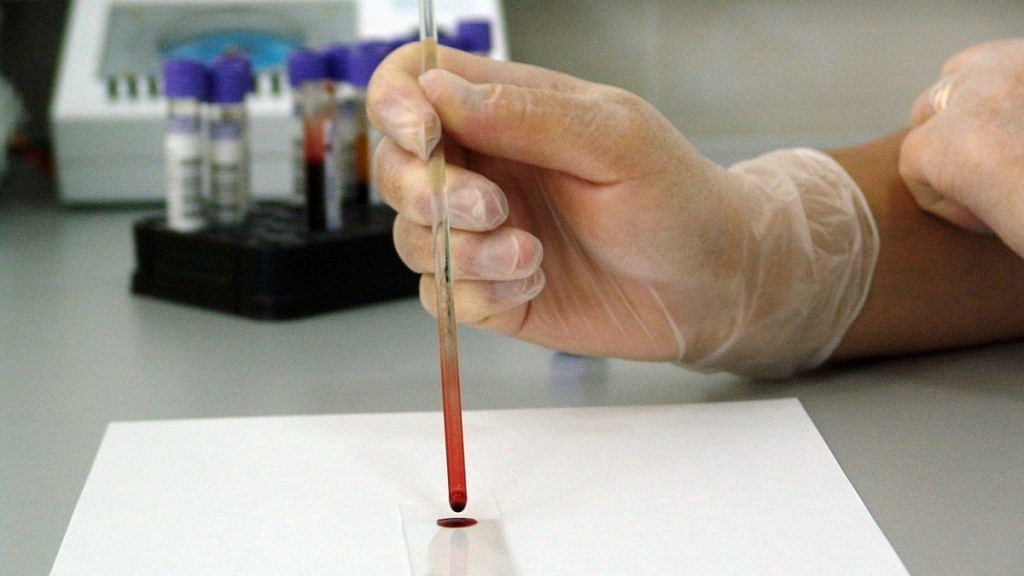New Delhi: The Union Ministry of Health has received “multiple reports” of liver damage in Covid-19 patients being treated with remdesivir, one of the drugs that has been touted as a promising treatment for coronavirus, ThePrint has learnt.
According to top sources in the government, the matter of remdesivir use is “being reviewed”. The matter of its side-effects, they said, was raised during a meeting at the ministry Friday.
“We have received multiple reports both from government hospitals and private hospitals that patients who have been given this drug are showing a sudden rise in levels of alkaline phosphatase, SGOT and SGPT that can lead to liver injury,” said a senior official in the health ministry. “We are gathering more information but this is something we are looking at very closely.”
Originally developed by the US pharma company Gilead Sciences, remdesivir is allowed for use among Covid-19 patients in India as an “investigational therapy” under emergency-use authorisation.
Remdesivir is not advised for patients who already show signs of liver damage, but the reports, officials said, mark the first time its use has been linked to liver damage.
Two Indian players have currently been allowed to sell the drug in India — Cipla and Hetero Labs. Approached for comment on the reports, an official from Hetero Labs said: “We have a very active surveillance programme. We have not got any reports (of liver injury).”
Cipla did not respond to ThePrint’s mail and text for comment until the time of publishing this report.
Also Read: Covid vaccine in India by 15 Aug? ICMR speeds trials as Modi govt eyes Independence Day target
Remdesivir is an ‘investigational therapy’
Alkaline phosphatase is an enzyme that is found in the bile ducts, intestine etc. The levels of alkaline phosphatase are used as a marker of the liver’s health, with elevated levels associated with liver diseases.
SGPT and SGOT are found in the blood. The levels of these two enzymes, too, indicate the health of the liver and elevated readings are associated with fatty liver, liver cancer etc.
The latest clinical management protocol for Covid-19, issued last week by the Ministry of Health, say remdesivir should not be used if a patient displays signs of liver damage, has severe renal impairment, is pregnant or lactating, and less than 12 years old.
The drug has also received emergency-use authorisation (EUA) from the US drug regulator, the Food and Drug Administration (FDA), to treat Covid-19.
Effect on liver is known
Gilead, in its safety summary about the drug, mentions the possibility of elevated liver enzymes. It says: “In clinical studies with remdesivir, infusion-related reactions and liver transaminase elevations have been observed. Remdesivir should not be used in patients who are hypersensitive to any ingredient of remdesivir. If signs and symptoms of a clinically significant infusion reaction occur, immediately discontinue administration of remdesivir and initiate appropriate treatment.”
Treatment by remdesivir requires patients to undergo appropriate clinical and laboratory monitoring to aid early detection of any potential adverse events.
“Monitor renal and hepatic function prior to initiating and daily during therapy with remdesivir; additionally monitor serum chemistries and hematology daily during therapy. The decision to continue or discontinue remdesivir therapy after development of an adverse event should be made based on the clinical risk/benefit assessment for the individual patient,” the drug-maker stated.
Also Read: Dexamethasone, favipiravir, plasma therapy — how India’s Covid care has evolved in 5 months
The drug
Remdesivir, an experimental drug originally developed for Ebola, is a broad-spectrum antiviral.
In several studies, it has been shown to have significant benefits for Covid-19 patients.
In a statement this April, the US government’s National Institutes of Health said hospitalised patients with “advanced Covid-19 and lung involvement who received remdesivir recovered faster than similar patients who received placebo, according to a preliminary data analysis from a randomised, controlled trial involving 1063 patients”.
It added: “Preliminary results indicate that patients who received remdesivir had a 31 per cent faster time to recovery than those who received placebo. Specifically, the median time to recovery was 11 days for patients treated with remdesivir compared with 15 days for those who received placebo. Results also suggested a survival benefit, with a mortality rate of 8.0 per cent for the group receiving remdesivir versus 11.6 per cent for the placebo group”.
However, in a study published in The Lancet the same month, Chinese researchers reported that they could not find any “statistically significant clinical benefits”.
They said: “Although not statistically significant, patients receiving remdesivir had a numerically faster time to clinical improvement than those receiving placebo among patients with symptom duration of 10 days or less. Adverse events were reported in 102 (66 per cent) of 155 remdesivir recipients versus 50 (64 per cent) of 78 placebo recipients. Remdesivir was stopped early because of adverse events in 18 (12 per cent) patients versus four (5 per cent) patients who stopped placebo early.”
Also Read: Favipiravir, Japanese drug that’s the new Covid treatment hope your chemist will soon stock
